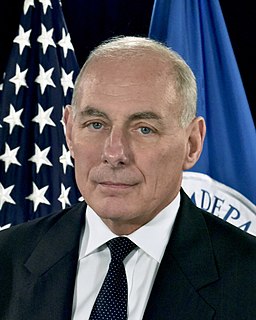A Quote by Michael Klare
The U.S. couldn't play a military role in different areas like Iraq and Afghanistan without huge quantities of oil. So a shortage or disruption in oil would not only damage the U.S. economy; it would undercut American military supremacy.
Related Quotes
There is a clear and strong link between the economy's present woes and the Iraq war. The war was at least one of the factors contributing to rising oil prices - which meant Americans were spending money on imported oil, rather than on things that would stimulate the american economy. Hiring Nepalese contractors in Iraq, moreover, doesn't stimulate the American economy in the way that building a school in America would do - and obviously doesn't have the long term benefits.
Speculation in oil stock companies was another great evil ... From the first, oil men had to contend with wild fluctuations in the price of oil. ... Such fluctuations were the natural element of the speculator, and he came early, buying in quantities and holding in storage tanks for higher prices. If enough oil was held, or if the production fell off, up went the price, only to be knocked down by the throwing of great quantities of stocks on the market.
So far in facing this huge [peak oil] challenge, our political/economic system seems unable to cope with reality. We are forced to carry on living in an illusion that we have so much time to adapt to post-oil that we don't even need to be talking or thinking much about what a world without plentiful oil would look like. Reality has become too dangerous.
By accident of geography, the world's major oil resources are in Shi'ite-dominated areas. Iran's oil is concentrated right near the gulf, which happens to be an Arab area, not Persian. Khuzestan is Arab, has been loyal to Iran, fought with Iran not Iraq during the Iran-Iraq war. This is a potential source of dissension. I would be amazed if there isn't an attempt going on to stir up secessionist elements in Khuzestan.
Yes and no. Because America has only about 1 percent of the population serving in the military, it is hard for many civilians to understand the sacrifices military families make. However, my experience is that after the Vietnam War, the public learned that they should support the military whether or not they support the war. You've seen that outpouring of support for the veterans of both Iraq and Afghanistan.
Kurdish autonomous region of Iraq is clearly a 'client' state of the West, of Turkey and to some extent, Israel. It is shamelessly capitalist, taking land from its own people, cheating them, just in order to pump and refine huge quantities of oil. It treats Syrian refugees like animals, forcing them to make anti-Assad statements. It is turning ancient Erbil into some bizarre shopping mall with nothing public in sight. Its military top brass is mainly US/UK-trained and indoctrinated. And it provokes Baghdad, day and night.


































